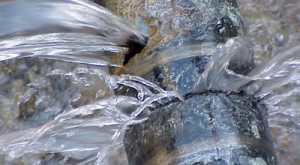 A little precautionary maintenance can go a long way to preventing serious – and costly – water emergencies. Plumbing maintenance is an integral part of building and property longevity. Ensuring your plumbing system is operating at peak performance not only prevents leaks and possible damage, but can extend the life of your system, appliances, fixtures, and everything else that uses water within your property. When a flood happens, it will impact your business dramatically.
A little precautionary maintenance can go a long way to preventing serious – and costly – water emergencies. Plumbing maintenance is an integral part of building and property longevity. Ensuring your plumbing system is operating at peak performance not only prevents leaks and possible damage, but can extend the life of your system, appliances, fixtures, and everything else that uses water within your property. When a flood happens, it will impact your business dramatically.
Here are three tips for plumbing maintenance to keep your water system running efficiently.
Water Heater Check
Hot water heaters may seem innocuous, but they are an essential part of every plumbing system. It is important that these water heaters are working efficiently and properly for your building occupants. Checking your water heater regularly for leaks, corrosion and calcium deposits is one of the easiest ways to ensure your water heater is working properly and efficiently as well as to ensure that you are complying with system warranty requirements. On average, a water heater in Arizona lasts approximately 10-12 years. It is recommended that a water heater is drained and flushed every one to two years to remove sediment. Sediment inside your tank can cause your water heater to run longer than necessary leading to a decrease in efficiency, an increase in costly water bill costs, and an increase in sediment buildup that can lead to erosion and leaks. If you have a tank-less system, it is extremely important to have a service agreement for annual maintenance/service. Without regular servicing, calcium deposits on the heating manifold of your tank-less system will prevent the unit from operating at its designed efficiency rating, and will dramatically reduce the unit’s life expectancy.
Water Treatment Check
Calcium deposits are often a sign of hard water, for which Arizona is well-known. Hard water deposits are corrosive and can cause leaks in your pipes, appliances and fixtures. Ensuring you have the proper water treatment equipment and preventative maintenance plan can help prevent potentially disastrous leaks. Water treatment systems, like water softeners, are an excellent way to treat your water. Water softeners work by removing elements like calcium, magnesium, iron, and others that cause calcium and sediment buildups. Many buildings have water softeners and water treatment systems that aren’t maintained regularly. If you have a water softener or water treatment unit, it is important that the unit is regularly serviced to help ensure the system remains effective, efficient, and safe.
Supply Lines Check
Water supply lines connect your plumbing system/pipes to your water systems, pipes and fixtures. To prevent deteriorating supply lines – a common cause of leaks – periodically check for age and condition, old corrugated supply lines, and supply lines that are too tight. While PEX (plastic and polyurethane) are common, use stainless steel braided supply lines for optimal durability and longevity.
Regular plumbing maintenance can help keep plumbing systems working properly, efficiently, and up to current codes!

